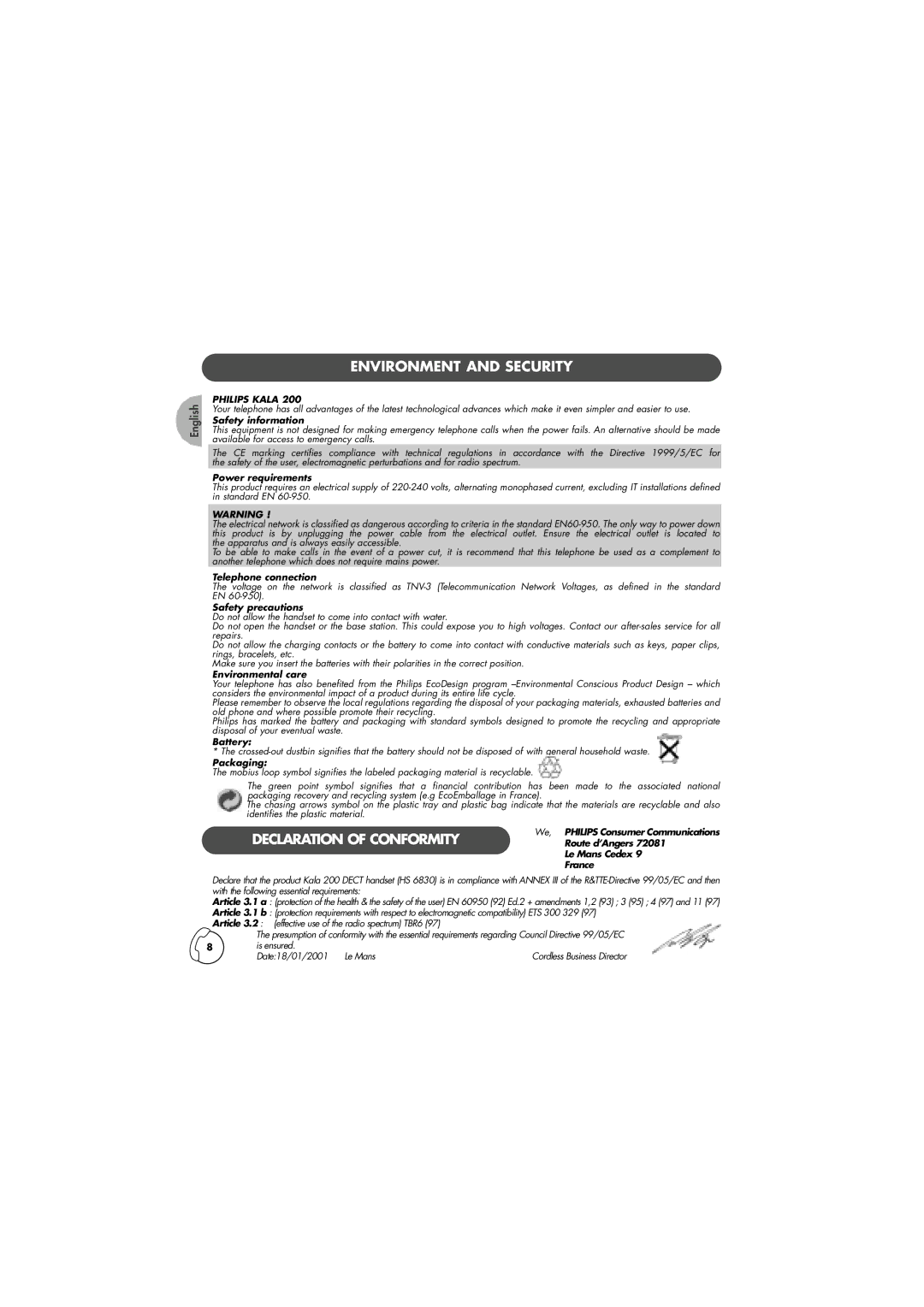
ENVIRONMENT AND SECURITY
English
PHILIPS KALA 200
Your telephone has all advantages of the latest technological advances which make it even simpler and easier to use.
Safety information
This equipment is not designed for making emergency telephone calls when the power fails. An alternative should be made available for access to emergency calls.
The CE marking certifies compliance with technical regulations in accordance with the Directive 1999/5/EC for the safety of the user, electromagnetic perturbations and for radio spectrum.
Power requirements
This product requires an electrical supply of
WARNING !
The electrical network is classified as dangerous according to criteria in the standard
To be able to make calls in the event of a power cut, it is recommend that this telephone be used as a complement to another telephone which does not require mains power.
Telephone connection
The voltage on the network is classified as
Safety precautions
Do not allow the handset to come into contact with water.
Do not open the handset or the base station. This could expose you to high voltages. Contact our
Do not allow the charging contacts or the battery to come into contact with conductive materials such as keys, paper clips, rings, bracelets, etc.
Make sure you insert the batteries with their polarities in the correct position.
Environmental care
Your telephone has also benefited from the Philips EcoDesign program
Please remember to observe the local regulations regarding the disposal of your packaging materials, exhausted batteries and old phone and where possible promote their recycling.
Philips has marked the battery and packaging with standard symbols designed to promote the recycling and appropriate disposal of your eventual waste.
Battery:
*The
Packaging:
The mobius loop symbol signifies the labeled packaging material is recyclable.
The green point symbol signifies that a financial contribution has been made to the associated national packaging recovery and recycling system (e.g EcoEmballage in France).
The chasing arrows symbol on the plastic tray and plastic bag indicate that the materials are recyclable and also identifies the plastic material.
We, PHILIPS Consumer Communications
DECLARATION OF CONFORMITYRoute d’Angers 72081
Le Mans Cedex 9
France
Declare that the product Kala 200 DECT handset (HS 6830) is in compliance with ANNEX III of the
Article 3.1 a : (protection of the health & the safety of the user) EN 60950 (92) Ed.2 + amendments 1,2 (93) ; 3 (95) ; 4 (97) and 11 (97)
Article 3.1 b : (protection requirements with respect to electromagnetic compatibility) ETS 300 329 (97)
Article 3.2 : (effective use of the radio spectrum) TBR6 (97)
The presumption of conformity with the essential requirements regarding Council Directive 99/05/EC
8is ensured.
Date:18/01/2001 | Le Mans | Cordless Business Director |
